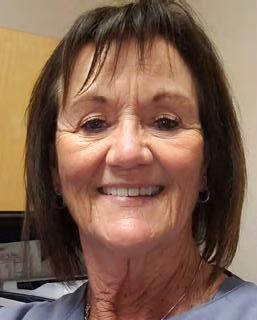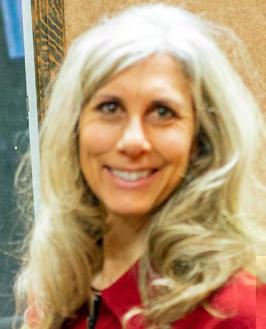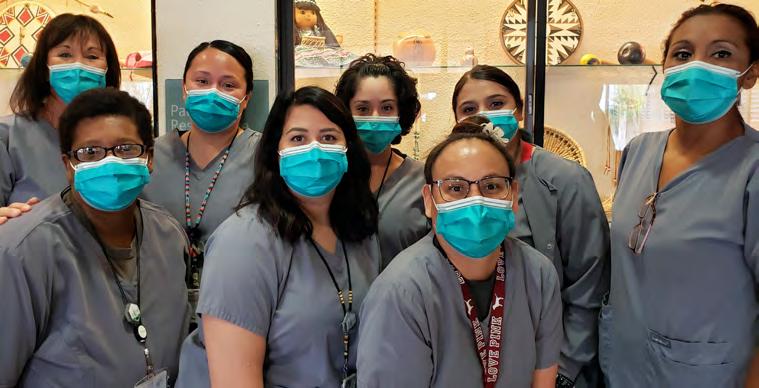
8 minute read
HONORING DENTAL ASSISTANTS DURING DARW
This year, more than ever, dental assistants deserve recognition and thanks during Dental Assistants Recognition Week
This year, Dental Assistants Recognition Week (DARW) is held March 7-13, 2021. Dental assistants are valuable members of the dental team who contribute to the practice and the care of patients in numerous ways.
Dental assistants have always played a critical role on the dental team, with a wide range of responsibilities. Whether stepping up to help provide emergency dental care, implementing infection control protocols, or providing extra patient comfort and care, dental assistants’ outstanding efforts deserve praise. Dental assistants are truly essential.
Since spring 2020, in particular, dental assistants have navigated many new changes and challenges as a result of the COVID-19 pandemic. Through it all, dental assistants also have demonstrated their resilience, in both big and small ways. For this, dental assistants deserve all the recognition in the world — and especially during DARW.
The importance of dental assisting
Heather Wyman, CDPMA, an office manager for an orthodontics practice in Massachusetts, points to several reasons why dental assistants are so important. “The dental practice could not be open without loyal staff,” she says. “I commend the dental assistants who are working chairside today — and especially those who started working with dental emergencies when the

Heather Wyman, CDPMA
COVID-19 outbreak was just beginning. The dental assistants and dental teams who were working put themselves on the line because they knew the need for action outweighed the initial reaction to stay safe at home.
“There was a great deal of catchup to do once our offices reopened,” Wyman continues. “There seemed to be a peripheral dam of patients bursting at the seams with multiple issues to funnel into a small amount of triage time. Without our brave staff, we would still be catching up today.”

Ashley Welter, CDA
Ashley Welter, CDA, has been a dental assistant for nearly eight years, and in that time has worked in Alabama and Hawaii. Welter stresses that dental assistants do much more than what the public often realizes. “We don’t just sit in a chair handing instruments and suctioning saliva,” she says. “So much more goes into our job duties. We have to keep our patients safe and protected from disease.”
Considering the COVID-19 pandemic, Welter stresses that dental assistants are more important than ever, especially for educating and comforting patients. “We have to show them that additional precautions are being taken to keep them safe while addressing their dental concerns,” she explains. “There is so much anxiety associated with dentistry already. It’s our job to ease patients’ minds.”

Doreen Denisty, CDA
Doreen Denisty, CDA, dental assistant supervisor with the Indian Health Services in Arizona, has been working in the dental field for nearly 50 years. She says in her career, she has seen the role of dental assistants grow and expand, and especially lately.
“The one thing I’ve really noticed, which I love to see, is the assistants today are doing far more proactive care than I did in the ’70s,” Denisty notes. “Today, there are more dental assisting programs and more credentials that dental assistants can earn than there were back then. Since the beginning of my career, I’ve always thought dental assisting has been very rewarding. It may be even more so now.”
The heart of dental assisting
Dental assistants often go the extra mile to provide the best patient care possible. Those moments not only make an impact on patients, but dental assistants also carry those heartwarming encounters with them.

Renee Odmark, CDA
Renee Odmark, CDA, of Shoreview, Minnesota, has been DANB certified and working as a dental assistant for almost 35 years. In addition to working full-time as a dental assistant, over the years, Odmark has spent time volunteering in a variety of locations.
Odmark reflects on her time working closely with a mobile clinic called Doorstep Healthcare Services, where the salon rooms in a senior center were turned into a small hygiene clinic. Odmark and the other dental staff helped senior care center patients — and their reaction to receiving treatment made the experience truly priceless.
“The clinic provided basic cleanings, as many of the residents didn’t have the dexterity to clean their teeth,” Odmark shares. “They would wait their turn to get their teeth cleaned, and when they were done, they would come out smiling, proud to show off their new smile.”
Starting about a decade ago, Odmark also has volunteered at a homeless shelter, Sharing and Caring Hands in Minneapolis. “Dental care is available on a first-come, first-serve basis. Dentists provide basic fillings and extraction services for those who have little to no dental coverage,” she describes. “When these patients have little to nothing left and they have dental pain, that is when we have the privilege to step in and at least take their pain away — and they are so very grateful.”
But perhaps Odmark’s most memorable recent experience has been volunteering, which then turned into a full-time job, with Adopt a Smile as a dental assistant, utilizing the Salvation Army’s mobile dental care unit, Lil’ Flossie. “It had two clinic chairs, one in front and one in back, and the sterilization area in the middle,” Odmark shares. “We would travel around the Minneapolis/Saint Paul metropolitan area schools. A few of us would go into the junior and senior high health classes to teach them about the importance of their diet and lifestyles.
“After proper consent forms were completed,” she continues, “our bus would pull up next to the school. We had a team of hygienists, dentists and assistants who would volunteer their time to help children get dental care that their families could not afford.”
Denisty also is able to look back on all the heartwarming moments she’s experienced in her career, and especially over the past 16 years a dental assistant supervisor.
When asked about how her team of eight assistants went above and beyond in 2020 specifically, Denisty spoke of their efforts to screen and care for patients. This included in parking lots and in a main dental clinic located in a hospital setting, where COVID-19-exposure concerns were constant especially early on in the pandemic.
“The pandemic has taken what we do — providing the best and safest possible care — to another level,” Denisty reflects. “My staff have been incredible and haven’t missed a beat. Caring for our patients with the possibility of exposure to COVID-19 isn’t easy.”
Denisty commends her colleagues for stepping up to the challenge and continuing to serve dental patients of all types. “We all volunteer outside of the clinic as well,” she explains. “We work the screening stations, run medications to the patients in their cars and hold a position on the department’s infection control team. Even though 2020 was challenging, it hasn’t stopped this dental team from being their best, doing their best and providing the safest care.”
The future of dental assisting
Despite the challenges of 2020 and ongoing changes in 2021, dental assistants are hopeful for the future and optimistic about where dental assisting is heading.
Wyman says she hopes dental treatment becomes more accessible. “With the increased interest in access to healthcare, I would like to see more access to dental care as a medically necessary component of overall healthcare,” she states. “I also see that treatment is becoming more accessible for people with the use of digital technology. Whether we can scan someone’s mouth to avoid an impression or deliver digitally fabricated aligners for people who are not fans of fixed appliances, I think this technology is heading in the right direction.”
Odmark agrees that technology has accelerated the pace of the profession. “From when I started in dental assisting in 1988, it’s like being on a treadmill that started at a walking speed and now is turned up to a running speed,” she says. “Everything is fast — the computers, the scanners, the mill — but the one thing that has stayed the same is the focus on caring for the patient in the chair.”
From her perspective, Welter concurs. She says she enjoys helping patients and building a bond with them. “I love helping them overcome their dental fears and giving them a reason to smile again,” she explains. “It truly changes their lives. It is an honor to take part in that.
“I truly hope that as the years go by,” Welter continues, “dental assistants are more valued, respected, and appreciated by their employers and teammates. We play such an important role in dentistry, and I just want that to be recognized.”

Doreen Denisty, CDA, far left in the back row, with her dental assisting staff.
For Denisty, she encourages her staff to focus on enjoying each day and being proactive about their professional goals. “Enjoying your career is essential to a great future in dentistry,” she states. “I have always felt so blessed in my career and enjoyed meeting so many different people and working with some incredible doctors. The joy that comes from knowing you did your best job and you made a difference in others’ lives is exciting for me.”









